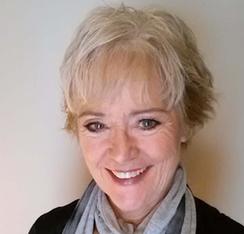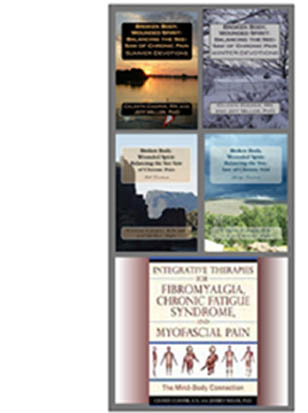A syndrome is a collection of symptoms that remains the same throughout a particular patient group, but the cause is unknown. These might include fibromyalgia syndrome, chronic fatigue syndrome, Cushing’s syndrome, irritable bowel syndrome, AIDS, Asperser’s syndrome, Barrett’s syndrome, carpal tunnel syndrome, leaky gut syndrome, paradoxical orthostatic tachycardia syndrome, Sjögren’s syndrome, Ehlers-Danlos Syndrome, urethral syndrome, restless leg syndrome, Raynaud's syndrome, CREST Syndrome (a form of Scleroderma), complex regional pain syndrome, and many more. You may not realize it, but even rheumatoid arthritis is considered a syndrome.
Some disorders are confusingly called diseases, when they are actually syndromes. Diseases generally have a known cause. And syndromes, even when we know something about them are still syndromes. For instance, research shows there is an excessive release of acetylcholine at the neuromuscular (nerve to muscle) junction of a myofascial trigger point, but myofascial pain syndrome is still considered a syndrome. This is because we don’t know what causes the excessive release of acetylcholine, a neurotransmitter, the chemical messenger between the body and the brain.
When invisible disorders have no biological marker, a test that says you specifically have the disorder/syndrome, and sometimes when they do, there is always the doubting Thomas. We think these folks mission in life is to prey on our psyche. Why is this? Pretty much the answer is simple; they don’t experience our pain, lack of restorative sleep, life altering fatigue, severe chronic headache, a bladder that is constantly on fire, constantly cold extremities, or feel like everything they touch is barb wire, just to mention a few symptoms of invisible illnesses. Syndromes are not seen as real because some people operate on the assumption that if you can’t see it, it isn't so, even some healthcare providers migraines were once attributed to a woman’s frenzied inability to cope with stress.
Newer research into genetic markers will plow under the misconceptions of those who do not share our syndrome. In the mean time, it is up to us to support those who support the research. Orphan disorders of all sorts face the same challenges.
In healing and hope, Celeste Cooper, RN author, patient, activist
All blogs, posts and answers are not meant to replace medical advice. www.thesethree.com












No comments:
Post a Comment